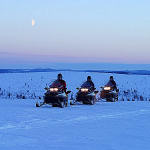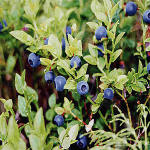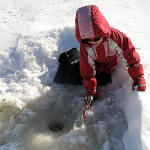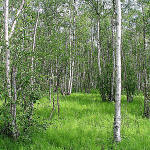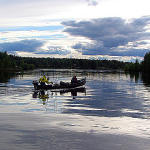

Home
Area
Vätsäri
Övre Pasvik
Pasvik Zapovednik
Nature
Geology
Climate
Water system
Flora
Fauna
Culture
Population
Religion
Sources of livelihood
Old ways of life
Time of industrialism
History
Stone Age
Early Metal Age
Late Metal Age
Middle Ages
Towards modern times
Timeline
Cooperation
Nature monitoring
Nature tourism
Publications
Contacts
Visit Pasvik-Inari
Guidelines
Regulations
News
Links
Rights and regulations in brief
Finland
People of all nationalities have the right to enjoy the Finnish countryside freely under the traditional Finnish legal concept known as everyman's right. However, long with these wide-ranging rights comes the responsibility to respect nature, other people, and property. Special regulations the protected areas additionally limit activities such as hunting, the use of motor vehicles, and access to sensitive areas during the nesting season. Such restrictions are listed separately for each area. You may contact the customer service points to get more information on hunting and fishing licences and about hiking in the wilderness.
The list below summarises the main rights and responsibilities within everyman’s right:
- walk, ski or cycle freely, except very near people’s homes, or in fields and plantations which could easily be damaged.
- camp out temporarily, a reasonable distance from homes
- pick wild berries, mushrooms and flowers, as long as they are not protected species
- fish with a rod and line
- use boats, swim or bathe in inland waters and the sea
- walk, ski, or drive a motor vehicle or fish on frozen lakes, rivers and the sea.
One may
- disturb people or damage property
- disturb reindeer, game, breeding birds, their nests or young
- let pets off lead
- cut down or damage trees
- collect moss, lichen or fallen trees from other people’s property
- disturb people’s privacy by camping too near them or making too much noise
- leave litter
- drive motor vehicles off road without the landowner’s permission
- hunt without the relevant permits
- fish with nets, traps, or a reel and lure without the relevant permits
One may not
Norway
The public right of access (Allemannsretten = everyman's rights) entitles everyone to hike and camp in the Norwegian countryside. The public right of access gives one the right to go hiking or skiing in forests and mountains, cycle and ride on paths and tracks and use motorless boats on rivers and lakes. The public right of access does not apply to the use of motor vehicles. Special rules and regulations apply in national parks and other nature protection areas. These regulations are listed separately for each protected area.
The public right of access basically only applies to uncultivated land and cultivated land when the land is frozen or covered by snow. Uncultivated land in Norway includes lakes, beaches, marshes, forests and mountains. Cultivated land includes cultivated fields, gardens, farmyards, and plots around houses. In other words, one does not have the right to go onto other people's cultivated land.
One can walk and ski anywhere one wishes and camp anywhere on uncultivated land. One can spend the night under the open sky or put up a tent, though not closer than 150 metres to a house or cottage. If one would like to spend more then 48 hours in the same place, one must ask the landowner's permission.
One also has responsibilities when exercising the public right of access. One must not harm animals, the vegetation or the countryside. One must tidy up after oneself and not leave any rubbish behind. One must also be careful when lighting fires. It is forbidden to light fires in forests or near forests during the period 15th April - 15th September.
In most places one can pick berries, mushrooms and flowers.
Fishing and hunting always require special licenses.
Russia
Foreign visitors of the State Nature Reserve Pasvik should have a valid Russian visa. Border crossing is only possible at the official border crossing points. The nearest border crossing point to the Pasvik reserve is the Storskog-Borisoglebsk crossing point situated on the Norwegian-Russian border. The Pasvik Reserve is situated in the strictly guarded cross-border area, with strict access control. To be able to visit the nature reserve it is important to book and to apply for the special border area permission in advance of the planned visit. The special border permission is needed both for foreigners as well as for Russian citizens. Copies of passport and Russian visa should be sent to the reserve administration e-mail address no later than 2 months prior to the planned visit in order to receive the permission in time.
While visiting the cross border area one should to all times carry all the required documents like ID and an individual or collective passport, which allows one to stay in the cross border area.
- It is prohibited to cross the state border.
- The staff of the nature reserve is to accompany visitors during their stay in the reserve.
- Those who break the rules associated with entry, sojourn and travel are liable to administrative sanctions as stipulated by RF Law on the State Border of the Russian Federation.
